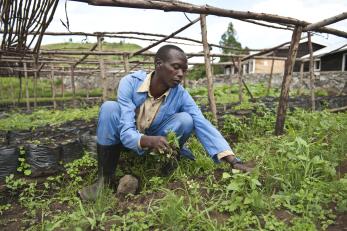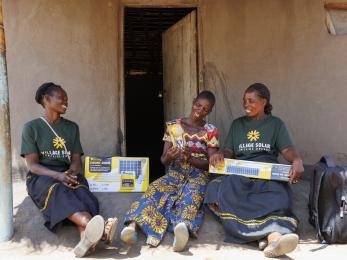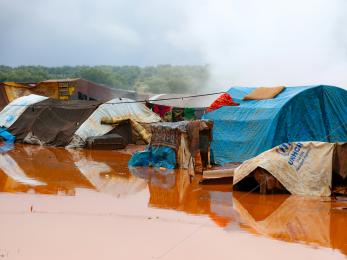Climate Change, Environment and NRM Sector Approach

We aim to mainstream climate change adaptation and mitigation into disaster risk reduction and development programming via alternative energies and carbon markets, helping communities adapt to climate change and develop working partnerships that build a response of effective scale.
Structuring a Response
Mercy Corps launched its climate change initiative in October 2006 in recognition that climate change will:
- Be a driver of future global humanitarian crises;
- Threaten to undermine any development progress made to date in support of the populations that we serve.
Mercy Corps considers climate change a lens through which to assess both threats and opportunities to development and humanitarian action.
Our efforts are intended to:
- Provide adaptation strategies for communities coping with the effects of climate change;
- Provide viable options for communities to diminish their own negative impacts on the environment;
- Integrate Mercy Corps successes and other experience into global policy development on climate adaptation and mitigation that impacts poor and vulnerable communities.
Mercy Corps leverages its presence in more than 40 countries with the intent of reaching hundreds of communities and thousands of people to bring results of scale. Regarding climate change, it focuses on three main areas:
- Alternative energy: Identifying and promoting alternative energy options that benefit poor and vulnerable communities and provide sustainable economic benefits at meaningful scale.
- Sustainable Resource Management: Supporting and promoting best practices and enhancing community capacity to protect environmental and ecological services.
- Advocacy, Outreach, and Example: Catalyzing governments and people to replicate successful, environment and climate-friendly programs.
Who we work with
We bring about positive environmental change by applying Mercy Corps’s vision for change that engages the public, private and civic sectors. Our climate change and ERM programs work in partnership with:
- Civil Society: Civic organizations that are comprised of, or work for, low income households and individuals (formal and informal cooperatives, local CBOs/ NGOs.)
- Private Sector: Businesses, because they are primary movers in the market economy and stakeholders such as carbon traders or trade associations.
- Public Sector: Governments, because they are integral to enabling and sustaining climate mitigation and adaptation at effective scale.
For additional details, please download our full approach document.


